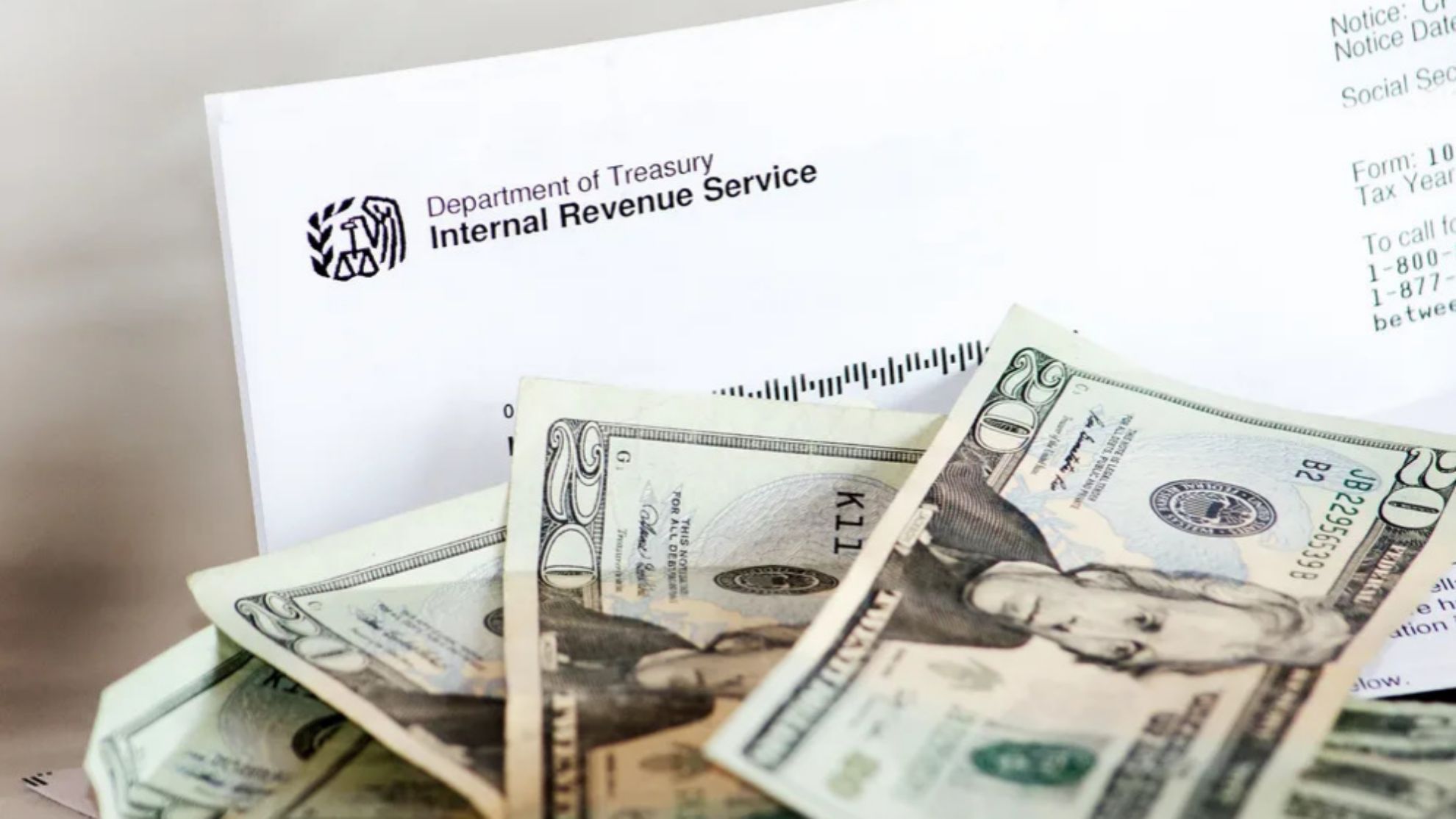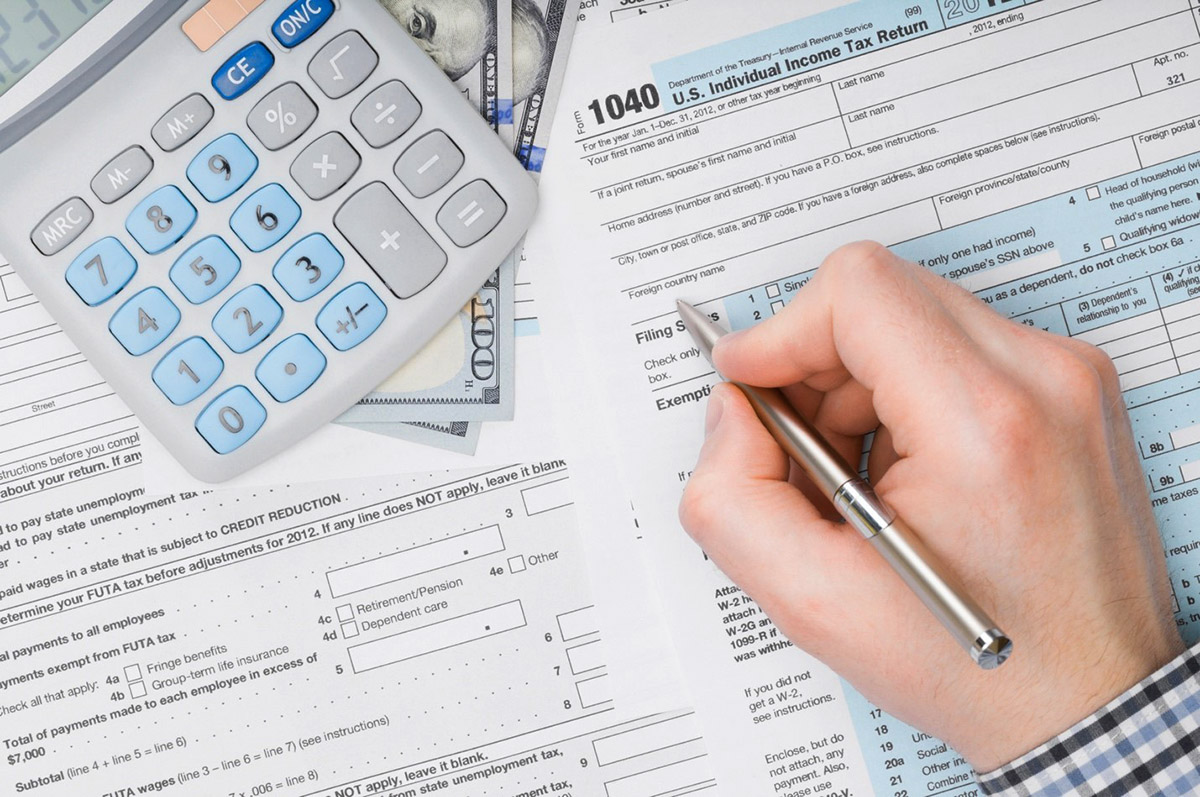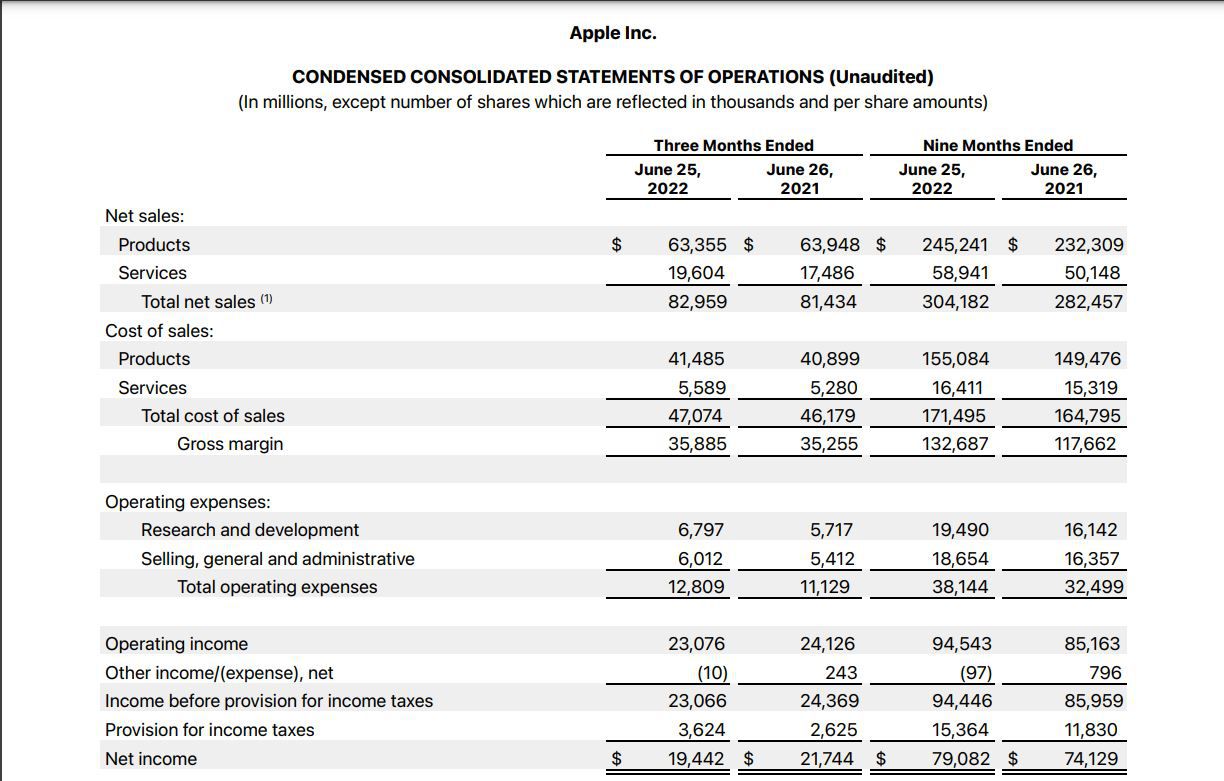

Finance
Where Do I Find Amount Of Income Tax For Fafsa
Published: November 2, 2023
Learn where to find the amount of income tax information needed for FAFSA. Explore finance resources for accurate and up-to-date tax details.
(Many of the links in this article redirect to a specific reviewed product. Your purchase of these products through affiliate links helps to generate commission for LiveWell, at no extra cost. Learn more)
Table of Contents
- Introduction
- Understanding FAFSA
- Importance of Income Tax Information
- Where to Locate Income Tax Information
- Option 1: IRS Data Retrieval Tool
- Option 2: Tax Return Transcripts
- Option 3: Accessing Income Tax Return Copies
- Option 4: Contacting the IRS Directly
- Verification Process for Income Tax Information
- Special Circumstances and Exceptions
- Conclusion
Introduction
When it comes to completing the Free Application for Federal Student Aid (FAFSA), one crucial piece of information is your income tax information. Providing accurate and up-to-date income tax information is essential as it helps determine your eligibility for financial aid, including grants, scholarships, and student loans. However, many students and their families often find themselves wondering where they can locate the necessary amount of income tax for FAFSA.
Understanding the importance of income tax information for FAFSA is essential. The information you provide on your FAFSA is used to calculate your Expected Family Contribution (EFC), which is the amount of money the federal government believes your family should contribute towards your education expenses. An accurate representation of your family’s income tax can greatly impact the amount of financial aid you may receive.
In this article, we will explore several options for finding the amount of income tax for FAFSA. Whether you are a student or a parent helping your child with the application process, knowing where to locate this information is crucial for a successful FAFSA submission.
So, are you ready to discover the different options available for finding your income tax information? Let’s dive in!
Understanding FAFSA
Before we delve into the specifics of finding income tax information for FAFSA, it’s important to have a clear understanding of what FAFSA is and why it is necessary.
The Free Application for Federal Student Aid (FAFSA) is a form that students or their parents must complete to apply for financial aid for higher education. This application is used by colleges, universities, and organizations to determine eligibility for federal, state, and institutional financial aid programs.
FAFSA takes into account various factors, including family income, assets, family size, and the number of family members attending college, to calculate the Expected Family Contribution (EFC). The EFC is an indicator of how much a student and their family can contribute towards college expenses.
It’s important to note that FAFSA is not just limited to federal financial aid programs. Many states and colleges also use the FAFSA application to determine eligibility for their own financial aid programs, including grants and scholarships. Some private scholarship programs also require students to complete the FAFSA.
Once you complete the FAFSA, you’ll receive a Student Aid Report (SAR) that provides an overview of your eligibility for financial aid. Colleges and universities will use this information to determine the type and amount of financial aid you qualify for.
Now that we have a better understanding of FAFSA, let’s explore the importance of income tax information in the FAFSA application process.
Importance of Income Tax Information
When it comes to completing the FAFSA, providing accurate income tax information is of utmost importance. The income tax information you provide helps determine your eligibility for various types of financial aid, including grants, scholarships, and student loans. Here’s why your income tax information is crucial for the FAFSA application:
- Determining your Expected Family Contribution (EFC): The income tax information you provide is used to calculate your EFC. This is the amount of money that the federal government believes your family can contribute towards your education expenses. Your EFC plays a significant role in determining your eligibility for need-based financial aid. The lower your EFC, the higher your chances of receiving financial aid.
- Verification process: In some cases, the information provided on the FAFSA may be subject to verification. This means that your school or the Department of Education may request additional documentation to validate the accuracy of the income tax information you provided. Properly reporting your income tax information from the start saves you from potential delays or complications during the verification process.
- Access to federal student aid programs: Many federal student aid programs, such as the Pell Grant, Direct Subsidized Loans, and Federal Work-Study, require you to demonstrate financial need. The income tax information you provide helps validate your eligibility and determines the amount of aid you may receive.
- Consideration for institutional aid: Colleges and universities may use your income tax information to determine your eligibility for their own institutional aid programs. Some schools award merit-based scholarships, grants, or tuition waivers based on financial need and academic achievement. Accurate income tax information increases your chances of receiving such institutional aid.
Overall, accurate income tax information is essential for creating an accurate representation of your financial situation. It ensures that you are considered for all the financial aid opportunities available to you and helps maximize the aid you may receive. With the importance of income tax information in mind, let’s explore where you can locate this information for your FAFSA application.
Where to Locate Income Tax Information
Now that you understand the significance of providing accurate income tax information for FAFSA, let’s explore the different options available to locate this information. Here are four common methods:
- Option 1: IRS Data Retrieval Tool: The IRS Data Retrieval Tool is an online tool provided by the Internal Revenue Service (IRS) that allows applicants to transfer their income tax information directly from the IRS to their FAFSA. This tool automatically fills in the income and tax information sections of the FAFSA with the most up-to-date information from your tax return. It is considered the easiest and most accurate way to provide income tax information for your FAFSA application.
- Option 2: Tax Return Transcripts: If you are unable to utilize the IRS Data Retrieval Tool, you can request a tax return transcript from the IRS. A tax return transcript is a summary of your tax return information. You can either request the transcript online, by phone, or by mail. Once you receive the transcript, you can manually enter the income tax information from it into the appropriate sections of your FAFSA.
- Option 3: Accessing Income Tax Return Copies: If you do not have access to your tax return transcript, you can request a copy of your income tax return directly from the IRS. This can be done by filing Form 4506-T, Request for Transcript of Tax Return. Keep in mind that obtaining a copy of your tax return may take some time, so it’s important to plan ahead and submit your FAFSA in a timely manner.
- Option 4: Contacting the IRS Directly: If you are facing difficulties in obtaining your income tax information through the previous options, you can contact the IRS directly for assistance. They can provide guidance on how to retrieve the necessary information or resolve any issues you may encounter.
Keep in mind that whichever option you choose, it is crucial to ensure the accuracy of the income tax information you provide. Double-check all the figures and details to avoid any discrepancies that may lead to delays or complications in the FAFSA process.
Now that you know where to locate your income tax information, it’s important to understand the verification process that may occur after you submit your FAFSA. We’ll explore this process in the next section.
Option 1: IRS Data Retrieval Tool
The IRS Data Retrieval Tool is a convenient and efficient option for transferring your income tax information directly from the Internal Revenue Service (IRS) to your FAFSA application. This tool simplifies the process and ensures accuracy by automatically populating the income and tax information sections of your FAFSA.
To use the IRS Data Retrieval Tool, you will need to have already filed your federal tax return. Here are the steps to follow:
- On the FAFSA application, when you reach the “Financial Information” section, you will see the option to use the IRS Data Retrieval Tool.
- Click on the “Link to IRS” button to securely connect to the IRS website.
- Enter your tax filing status for the relevant tax year and provide your Personal Identification Number (PIN) or Federal Student Aid (FSA) ID to authenticate your identity.
- Review the retrieved information from the IRS, which includes your Adjusted Gross Income (AGI) and other tax-related details.
- Choose to transfer the data directly to your FAFSA application by clicking the “Transfer My Tax Information into the FAFSA” button.
- Verify that the transferred information is accurate and complete any remaining sections of the FAFSA.
Using the IRS Data Retrieval Tool not only saves you time but also reduces the chances of errors in reporting your income tax information. It eliminates the need for manual data entry, which can be prone to mistakes. Additionally, using this tool may lower your chances of being selected for verification, as the transferred information is considered highly accurate and reliable.
However, it’s important to note that the IRS Data Retrieval Tool may not be available in certain circumstances, such as if you filed an amended tax return or if you are married but filed separate tax returns. In such cases, you will need to explore alternative methods for providing your income tax information.
Now that you are familiar with the IRS Data Retrieval Tool, let’s explore another option for locating your income tax information for FAFSA: Tax Return Transcripts.
Option 2: Tax Return Transcripts
If you are unable to use the IRS Data Retrieval Tool or if it is not available to you, another option for locating your income tax information for FAFSA is through tax return transcripts. A tax return transcript summarizes the information from your original tax return and can be obtained directly from the Internal Revenue Service (IRS).
Here’s how you can request a tax return transcript:
- Online: Visit the IRS website and navigate to the “Get Transcript” tool. Follow the instructions to request a tax return transcript online. You will need to provide your personal information, including your Social Security Number, date of birth, and the address on your latest tax return.
- Phone: Call the IRS at their toll-free number (800-908-9946) and follow the automated prompts to request a tax return transcript. You will need to provide your Social Security Number, date of birth, and the address on your latest tax return.
- Mail: Download Form 4506-T, “Request for Transcript of Tax Return,” from the IRS website. Fill out the form, including the appropriate tax year you need the transcript for, and mail it to the address provided on the form.
Once you have obtained your tax return transcript, you can manually enter the income tax information into the corresponding sections of your FAFSA application. It’s important to carefully review the transcript and accurately report the information to avoid any discrepancies.
Keep in mind that tax return transcripts may take a few weeks to be delivered, so it’s crucial to plan ahead and request them in a timely manner. Additionally, tax return transcripts are not the same as copies of your tax returns, and they should not be used interchangeably. Transcripts provide a summary of the tax information, while copies provide a detailed record of your tax return.
If you are unable to obtain a tax return transcript or if you encounter any difficulties during the process, don’t worry. There are additional options available, such as accessing income tax return copies. We will explore this option in the next section.
Option 3: Accessing Income Tax Return Copies
If you are unable to obtain a tax return transcript or if you need a more detailed record of your income tax return, you can request a copy directly from the Internal Revenue Service (IRS). While tax return transcripts provide a summary of your tax information, copies provide a more detailed record of your filed tax return.
Here’s how you can request a copy of your income tax return:
- Form 4506: You can request a copy of your tax return by filling out and mailing Form 4506, “Request for Copy of Tax Return,” to the address mentioned on the form. Note that there may be a fee associated with this request.
- Form 4506-T: Another option is to fill out Form 4506-T, “Request for Transcript of Tax Return,” and check the box indicating that you need a copy of your tax return. This form can be submitted to the IRS by mail or fax. Keep in mind that requesting a tax return copy using Form 4506-T does not incur a fee.
- Online services: The IRS provides an online tool called “Get Transcript by Mail” that allows you to request a copy of your tax return. Simply visit the IRS website and follow the instructions provided to request a copy. This service is free of charge.
It’s important to note that obtaining a copy of your income tax return may take some time. Therefore, it is crucial to plan ahead and submit your request well in advance of the FAFSA deadline. Additionally, there may be a fee associated with requesting a copy using Form 4506, so it’s essential to review the instructions and requirements provided by the IRS.
Once you receive a copy of your tax return, you can manually enter the income tax information into the corresponding sections of your FAFSA application. Take your time to review the details and ensure accuracy to avoid any discrepancies in the application process.
If you encounter any difficulties during the request process or if you have specific inquiries about your tax return, you can always reach out to the IRS directly for assistance. They have dedicated helplines and customer service representatives who can provide guidance and support.
Now that you are aware of accessing copies of your income tax return, let’s explore another option for obtaining your income tax information for FAFSA: contacting the IRS directly.
Option 4: Contacting the IRS Directly
If you are facing challenges or unable to access your income tax information through the previously mentioned options, reaching out to the Internal Revenue Service (IRS) directly can provide assistance and resolve any issues you may encounter.
Here are a few ways to contact the IRS for help with your income tax information:
- IRS Website and Resources: Visit the official IRS website for a wealth of information and resources. The website provides FAQs, publications, and various tools to assist you in understanding your income tax return and locating the necessary information.
- IRS Customer Service Hotlines: The IRS has dedicated helplines where you can speak with a customer service representative. They can provide guidance and answer your specific questions regarding your income tax return and its availability for FAFSA purposes. The phone number to contact the IRS can be found on their official website.
- Local IRS Office: If you prefer face-to-face assistance, you can visit a local IRS office. Use the IRS website to locate the nearest office in your area and schedule an appointment to discuss your income tax information for FAFSA. The IRS staff can provide guidance and help resolve any issues you may have.
When contacting the IRS directly, it’s important to have your personal information and relevant details readily available. This may include your Social Security Number, tax filing status, and the tax year you need the information for. Being prepared with this information will help facilitate the conversation and ensure that you receive the assistance you need.
Remember, the IRS is there to help, and their customer service representatives are experienced in handling a wide range of inquiries. If you encounter any difficulties or have questions about your income tax information, don’t hesitate to reach out to them for guidance.
Now that we have explored all the options available for locating your income tax information for FAFSA, it’s important to understand the verification process that may occur after you submit your application. We will discuss this process in the next section.
Verification Process for Income Tax Information
After submitting your FAFSA application and providing your income tax information, you may be selected for a process called verification. Verification is a systematic review conducted by your college or university to confirm the accuracy of the information you provided on the FAFSA, including your income tax information.
If selected for verification, you will be required to provide additional documentation to validate the income tax information you reported. The specific documents needed may vary, but commonly requested items include:
- IRS tax return transcripts or copies of your tax returns
- W-2 forms or other income statements
- Verification worksheets provided by your school
- Proof of non-filing from the IRS for those who did not file a tax return
The verification process serves to ensure that the information provided on the FAFSA is accurate and matches the information on your income tax returns. It helps maintain the integrity of the financial aid system and ensures that eligible students receive the appropriate amount of aid.
It’s important to respond promptly to any verification requests from your college or university and provide the requested documentation within designated timelines. Failure to comply with verification requirements may result in delays in receiving financial aid or even the loss of eligibility for certain types of aid.
If you utilized the IRS Data Retrieval Tool to transfer your income tax information to your FAFSA, it significantly reduces the chances of being selected for verification. The transferred information is considered to be accurate and reliable by the Department of Education. However, it doesn’t guarantee exemption from the verification process entirely, as some institutions may still select applicants randomly or based on their own internal policies.
It’s important to keep copies of all the documentation you submit during the verification process for your records. This will help you maintain a record of the information provided and facilitate any further inquiries or appeals, if necessary.
Understanding the verification process and the importance of accurately reporting your income tax information on the FAFSA can help ensure a smooth financial aid process. Now, let’s explore any special circumstances or exceptions that may apply regarding income tax information for FAFSA.
Special Circumstances and Exceptions
While most applicants are required to provide income tax information on their FAFSA, there are some special circumstances and exceptions that should be considered. These circumstances may impact how income tax information is reported or whether it needs to be reported at all. Here are a few situations to be aware of:
- Special Circumstances: If your family has experienced a significant change in financial circumstances since filing your income tax return, such as job loss, loss of benefits, or significant medical expenses, you may be eligible for a reevaluation of your financial aid eligibility. In such cases, you can contact the financial aid office at your college or university to discuss your situation and provide documentation of the special circumstances.
- Non-filing Status: If you did not file a tax return for the relevant tax year, you may still be required to provide documentation to confirm your non-filing status. In such cases, you can request a “Verification of Nonfiling Letter” from the IRS or provide a signed statement indicating that you were not required to file a tax return.
- Marital Status: If you are married and filed separate tax returns, you may encounter difficulties in using the IRS Data Retrieval Tool. In such cases, you will need to manually enter the income tax information from your individual tax return into the FAFSA. However, if you are married and filed a joint tax return, you should use the IRS Data Retrieval Tool to ensure accuracy.
- Tax Extensions: If you filed for a tax extension and have not yet filed your tax return at the time of completing the FAFSA, you can estimate your income tax information based on the previous year’s return. Once you file your tax return, you should update the information on your FAFSA using the IRS Data Retrieval Tool or by making corrections manually.
It’s important to be aware of these special circumstances and exceptions and to communicate them with your college or university’s financial aid office. They can provide guidance on the proper reporting of income tax information and any documentation required in these situations.
Remember, accurate and timely reporting of your income tax information is crucial for determining your financial aid eligibility. If you have any questions or uncertainties regarding your specific circumstances, it’s always best to reach out to your college or university’s financial aid office for guidance and support.
Now that you are aware of the special circumstances and exceptions related to income tax information for FAFSA, let’s conclude this article.
Conclusion
Locating and providing accurate income tax information is a crucial step in completing the Free Application for Federal Student Aid (FAFSA). Your income tax information plays a significant role in determining your eligibility for various types of financial aid, such as grants, scholarships, and student loans.
In this article, we explored several options for locating income tax information for FAFSA. The IRS Data Retrieval Tool allows for the seamless transfer of income tax information from the IRS to your FAFSA application, ensuring accuracy and reducing the chances of being selected for verification. If the IRS Data Retrieval Tool is not available, you can request a tax return transcript or obtain a copy of your tax return directly from the IRS.
Additionally, we discussed the verification process that may occur after submitting your FAFSA and the importance of responding promptly and providing the requested documentation. We also highlighted special circumstances and exceptions that may affect the reporting of income tax information, such as changes in financial circumstances, non-filing status, marital status, or filing extensions.
Remember, it’s essential to maintain communication with your college or university’s financial aid office throughout the FAFSA process. They can provide guidance, answer your questions, and assist you with any special circumstances or exceptions you may encounter.
By understanding the importance of income tax information for FAFSA and being aware of the available options and processes, you can ensure a smooth and accurate application for financial aid, increasing your chances of receiving the support you need to pursue your educational goals.














